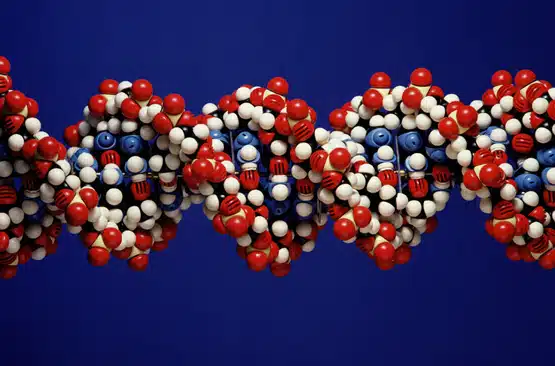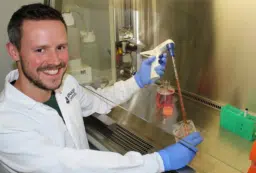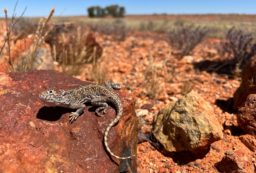A new test will help protect Australia’s apple and pear industry from a devastating bacterial disease affecting other countries, says a Victorian scientist.
Rachel Mann, of La Trobe University, has identified unique signatures in the DNA of fire blight-causing bacteria that can be targeted with a test, ensuring the accurate detection of the biosecurity hazard and the protection of the fruit industry’s economic viability.
“Maintaining Australia’s status as ‘fire blight free’ is not only important for protecting our industry from the disease, but also for retaining market access for Australian fruit into other countries,” says Rachel, who conducted the work at the Centre for AgriBioscience in a joint venture between La Trobe University and the Department of Environment and Primary Industries.
Fire blight is found in New Zealand, North America and Europe, but is not present in Australia.
“Fire blight causes the leaves, shoots and limbs of apple and pear trees to permanently shrivel and blacken. It can eventually kill whole trees and destroy orchards,” Rachel says.
By comparing the genomes of numerous fire blight-causing bacteria, Rachel identified unique signatures only found in the DNA of the fire blight bacteria, which could then be targeted for accurate diagnostic testing. Her work is set to have an international impact.
“Working with collaborators in the United States and Switzerland, we want our new tests to be accepted as the international standard for fire blight,” Rachel says.
“Additionally, as part of a new Plant Biosecurity CRC project, the methods used to develop improved tests for fire blight are now being used to improve tests for other microbes important to Australia’s biosecurity,” she says.
Victoria State Finalist: Rachel Mann, Department of Primary Industries Victoria /La Trobe University






 Fresh Science is on hold for 2022. We will be back in 2023.
Fresh Science is on hold for 2022. We will be back in 2023.